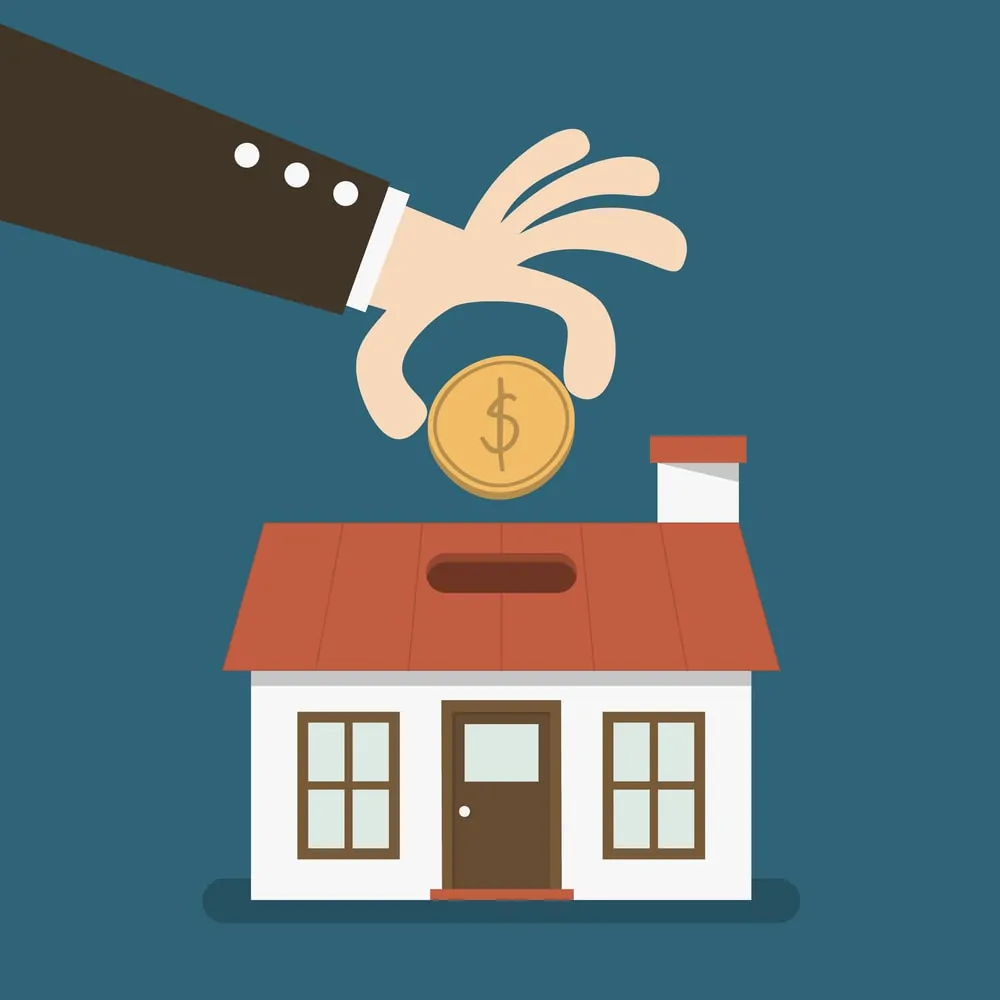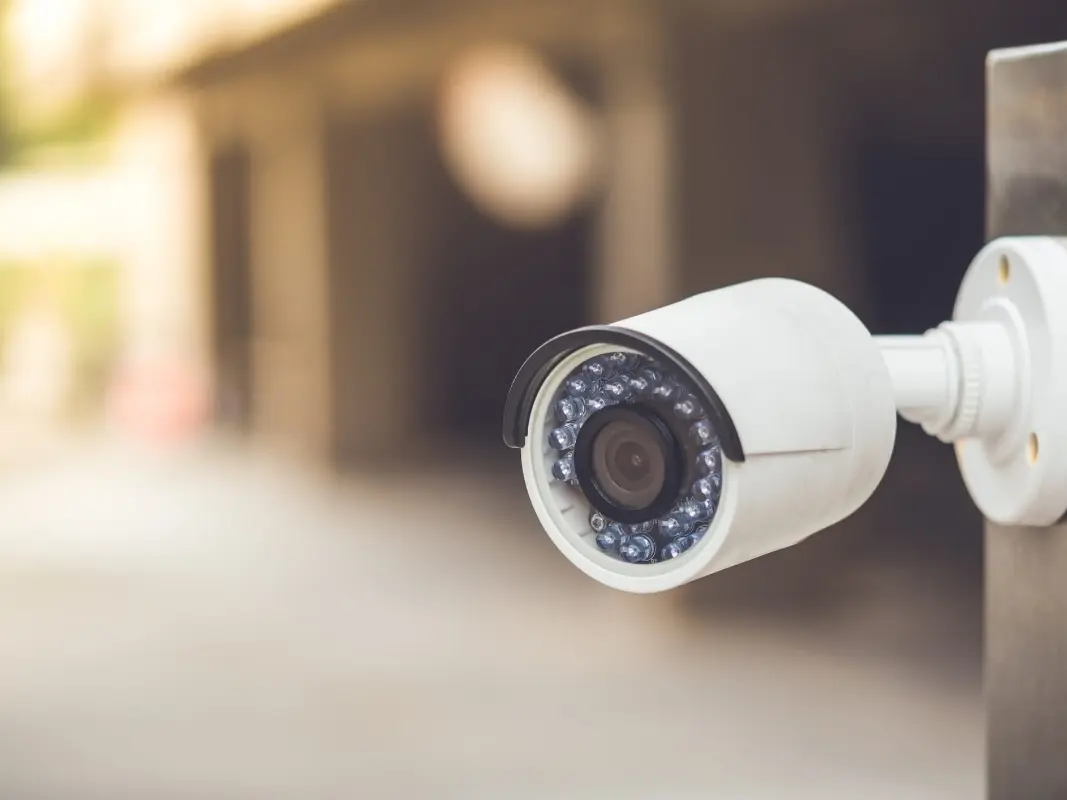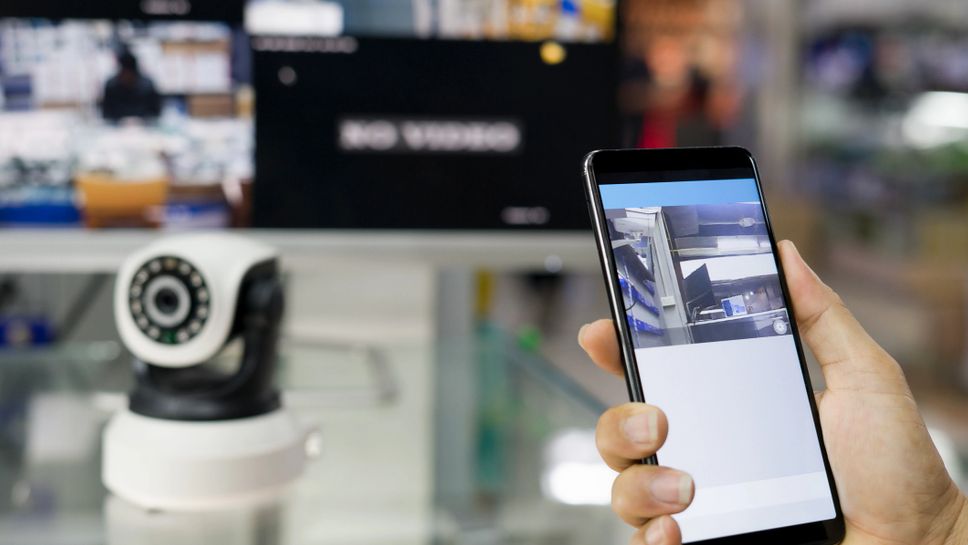Contents
- 1 The Importance of Having a Security System for Your Business
- 2 A Brief Overview of What to Expect in the Article
- 3 Determine Your Business Needs
- 4 Types of Security Systems Available
- 5 Factors to Consider When Choosing a Security System
- 6 Choosing a Security System Provider
- 7 Installation Process & Ongoing Support
- 8 Conclusion
The Importance of Having a Security System for Your Business
Running a business is no easy feat, and one of the most important aspects of any business is its security. Whether you own a small convenience store or a large corporation, security should be on the top of your list of priorities.
A security system can help protect your property, assets, and most importantly, your employees. Unfortunately, businesses are vulnerable to threats such as thefts, break-ins, vandalism and other criminal activities.
It is crucial to have measures in place that can mitigate these risks effectively. A well-planned security system can help prevent these incidents from happening altogether or at least minimize their impact.
Moreover, having a comprehensive security system can provide peace of mind to you and your employees. Knowing that there are systems in place that can alert authorities in case of an emergency helps create a safer work environment.
A Brief Overview of What to Expect in the Article
In this article, we will guide you through the process of choosing the right security system for your business. We will cover everything from assessing your business needs to selecting an appropriate provider and understanding the installation process. Firstly, we will discuss determining your business needs by assessing potential risks and vulnerabilities unique to your business premises.
We will then explore the different types of security systems available such as burglar alarms, CCTV surveillance systems access control systems and fire alarms. Next up we will delve into factors you should consider when choosing an appropriate security system for your business such as cost considerations,ease-of-use,maintenance requirements,reliability,and compatibility with other existing systems.Then we’ll take some time on how to choose an appropriate provider that suits all those factors so far discussed .
,after getting services from several reputable providers ,we’ll dive into what’s involved during installation,different forms of ongoing support and maintenance,repairs and upgrades. Having a good security system in place for your business is essential and we hope that this guide will provide you with the necessary knowledge to make an informed decision when selecting a security system for your business.
Determine Your Business Needs
Assessing the size and layout of your business premises
Before you start looking for security systems, you need to evaluate the size and layout of your business premises. This will help you determine the type of system that will be most effective for your needs.
For example, if you run a small retail shop, a simple burglar alarm might be sufficient. However, if you have a large warehouse with multiple entry points, you might need a more advanced CCTV surveillance system.
Identifying potential security risks and vulnerabilities
Next, consider any potential security risks or vulnerabilities that could compromise the safety of your business assets. This could include things like poor lighting in certain areas, blind spots around corners or entrances/exits that are not properly secured. By identifying these weaknesses ahead of time, you can choose a security system that addresses these issues and provides greater protection.
Considering the type of business you run and its unique requirements
The type of business you run and its unique requirements will also play an important role in determining which security system is right for you. For example, if you handle sensitive customer data or valuable inventory on site, access control systems that restrict entry to certain areas may be necessary to prevent theft or unauthorized access.
Similarly, businesses with high levels of foot traffic (such as retail stores) may require CCTV cameras to monitor customer behavior. When considering your specific needs it’s important not to overlook regulatory requirements as well.
Certain industries such as healthcare or finance have strict regulations regarding data privacy and protection measures. It’s important to make sure that any security investments meet both industry-specific regulatory compliance needs as well as general best practices for keeping your employees safe.
Creative subtitle
Security System Planning: Think Like a Thief Don’t forget about thinking creatively when assessing risks. Consider how someone with nefarious intent could attempt to gain access to your business or what areas might be particularly attractive targets for a criminal.
Using security consultants
If you’re struggling to determine the right security system for your business, consider hiring a security consultant who can help you assess your needs and recommend the best solutions. They can look at your business from an outsider’s perspective and identify potential vulnerabilities that may have been overlooked. Keep in mind that while there may be an upfront cost associated with hiring a consultant, their expertise can ultimately save you money by helping you choose the most effective security system for your specific needs.
Overall, taking the time to assess your business needs is crucial when choosing a security system. By considering factors such as the size and layout of your premises, potential risks and vulnerabilities, industry-specific requirements and unique challenges posed by your specific type of business, you’ll be better equipped to make an informed decision about which system will provide optimal protection.
Types of Security Systems Available
Burglar Alarms: Protect Your Business Against Intruders
Burglar alarms are an effective way to deter intruders from entering your business premises. They work by triggering a loud alarm when the sensors detect motion or a breach in the security system.
There are several types of burglar alarms available, including wired and wireless systems. Wired systems require physical installation of wires that connect all the sensors to a central control panel.
Wireless systems work through radio waves communicating between each sensor and the control panel. Wireless systems can be easier to install but may require more maintenance than wired systems as batteries may need replacing periodically.
When choosing a burglar alarm, consider how many zones it has, which is determined by how many areas in your business you want to monitor. Think about whether you want a system that is monitored 24/7 or one that alerts you directly via mobile application or text message.
CCTV Surveillance Systems: Keep an Eye on Your Business at All Times
CCTV surveillance systems consist of cameras strategically placed throughout your business premises that record and monitor activity 24/7. The footage can be viewed in real-time or saved for later viewing as evidence if needed. There are several different types of CCTV cameras available, each with their unique features such as pan-tilt-zoom (PTZ) functionality for wider coverage or night-vision capabilities for low light conditions.
When considering CCTV surveillance systems, think about the number of cameras needed based on your business size and layout. Consider if you need remote access to view footage from outside the office environment, and ensure any chosen provider offers secure cloud storage for data protection against hacking attempts.
Access Control Systems: Only Allow Authorized Personnel Into Your Business Premises
Access control systems limit entry to authorized personnel only by requiring a specific form of verification, such as a key card or fingerprint scan. These systems can be especially useful for businesses with high-security areas where only certain personnel are allowed entry.
When choosing an access control system, consider if you want to pair it with other security measures such as CCTV surveillance or burglar alarms. Look into integration with your existing network infrastructure and easy-to-use software interfaces to manage access rights for employees.
Fire Alarms: Protect Your Business From Fire Hazards
Fire alarms are crucial for any business premises, as they can save lives and prevent property damage in the event of a fire. These alarms work by detecting smoke or heat changes and sounding an alarm to alert occupants of potential danger.
There are several types of fire alarms available, including ionization sensors that detect small flames and smoldering fires, and photoelectric sensors that detect larger smoke particles. Dual-sensor alarms combine both technologies for maximum coverage.
When selecting a fire alarm system, consider the size of your business premises and whether it requires hardwired or wireless solutions. Ensure that any chosen provider complies with local building codes and regulations to meet safety standards.
By understanding the various types of security systems available for businesses, you can make an informed decision on which ones will best suit your needs. Remember to assess the size and layout of your premises before deciding on the number of systems required.
Consider pairing different security measures together for maximum protection against potential risks. Ensure all chosen providers comply with relevant local regulations to maintain safety standards within your business premises.
Factors to Consider When Choosing a Security System
Choosing the right security system for your business can be challenging. With so many options available, it’s important to know what factors to consider before making a decision. Here are some key factors that you should keep in mind.
Cost considerations
The cost of installing a security system can vary depending on the type of system you choose, the size of your business premises, and the features you need. It’s important to set a budget before you start looking at different security systems and make sure that you’re not overspending on something that is not necessary for your business. One way to save on costs is by choosing a security system that is easy to install and maintain.
Some systems require professional installation, which can add significantly to the overall cost. However, there are also DIY options available that are much more affordable.
Ease of use and maintenance
Another important factor to consider when choosing a security system is ease of use and maintenance. You want a system that is user-friendly and easy for your employees to operate. You don’t want them struggling with complicated technology when they could be focusing on their work.
In addition, choose a system with low maintenance requirements. The last thing you want is something that needs constant attention or repairs as this can impact your bottom line by taking valuable time away from running your business.
Quality and reliability of equipment
The quality and reliability of equipment should also factor into your choice of security system. Choose reputable brands known for producing high-quality equipment designed specifically for commercial settings like yours. Remember, investing in cheaper, less reliable equipment may end up costing you more in the long run if it fails when you need it most or requires frequent repairs or replacements.
Compatibility with other security measures in place
It’s important to choose a security system that is compatible with any other security measures you already have in place. You want a system that can integrate seamlessly with your other security measures. For example, if you already have an access control system in place, you want to ensure that the new security system can be easily integrated with it.
This will help you achieve maximum protection for your business and reduce the potential for vulnerabilities and weaknesses. Choosing a security system for your business is an important decision that requires careful consideration.
You need to think about cost considerations, ease of use and maintenance, quality and reliability of equipment, and compatibility with other security measures already in place. By keeping these factors in mind when shopping for a security system, you’ll be able to make an informed decision that provides the best protection for your business.
Choosing a Security System Provider
With the importance of protecting your business, it’s essential to choose a reliable and experienced security system provider. In this section, we’ll outline key factors to consider when selecting a security provider that meets your business needs.
Researching Reputable Providers in Your Area
The first step is to identify security system providers in your area. You can start by checking online directories for businesses that provide security systems and services in your location. You can also ask for recommendations from other business owners who have installed similar systems.
Once you have a list of potential providers, research each one thoroughly to find out their history, reputation, and experience. You can check with the Better Business Bureau (BBB) or state licensing agencies to verify if there are any complaints filed against them.
Also, visit their website or social media pages to learn more about the company’s culture and values. You want to ensure that you select a provider with an impeccable reputation for providing high-quality products and exceptional customer service.
Checking For Certifications and Licensing
Certifications and licensing are crucial when choosing a security system provider for your business. A reputable provider should hold all the necessary certifications required by state laws governing security systems installation. These certifications demonstrate that the company has undergone rigorous training on installation procedures that meet industry standards.
Licensing is equally important as it ensures the company adheres to local laws regulating security systems installations, which vary depending on location. The license shows they have met all requirements set by regulatory bodies within their jurisdiction.
Reading Customer Reviews
A great way to learn about customers’ experiences with different companies is by reading customer reviews online or on social media platforms such as Facebook or Twitter. Check if they have any testimonials or case studies on their website.
These reviews provide insights into the level of service the company provides, what customers appreciate most about their services and areas that need improvement. Pay attention to reviews mentioning customer service, reliability, and responsiveness to customer needs, as these are essential qualities in a security system provider.
If the majority of customers are satisfied with the provider’s services and products, it’s a good indication that you’re likely to have a positive experience too. Selecting the right security system provider for your business is crucial in securing your assets.
Take time to research potential providers in your area and evaluate them based on their reputation, licensing credentials and customer feedback. Choosing a reputable provider with unmatched customer service will ensure you have peace of mind that your business is adequately protected.
Installation Process & Ongoing Support
Understanding the Installation Process
Installing a security system can be a complex and time-consuming process, especially for larger businesses. That’s why it’s important to choose a provider with experience in installation services who can walk you through every step of the process.
After assessing your business needs, your security system provider will work with you to create a customized plan that addresses your specific vulnerabilities and requirements. This may involve installing cameras, sensors, alarms, access control systems, and other security equipment in various areas of your premises.
The installation process typically begins with site preparation, including identifying power sources and mounting locations for the equipment. Your provider will then install and configure all necessary hardware and software components before conducting thorough testing to ensure everything is working correctly.
Inquiring about Ongoing Support Services such as Maintenance, Repairs, and Upgrades
Once your security system is installed and set up correctly, it’s critical to maintain it properly over time to keep it functioning at its best. That’s why it’s important to choose a provider that offers ongoing support services such as maintenance, repairs, and upgrades. Regular maintenance involves checking all components of the system regularly to ensure they are functioning correctly.
This includes inspecting cameras for any damaged or malfunctioning parts or replacing batteries in sensors when necessary. Regular maintenance checks can help identify any issues early on before they escalate into more significant problems that could compromise your business’s security.
In addition to regular maintenance checks, repairs may be needed if any part of the system malfunctions or becomes damaged due to an external factor like severe weather or vandalism. Most providers offer repair services as part of their standard service offerings; however, you should clarify this with them beforehand so you know exactly what is covered under their service agreement.
upgrading your security systems periodically will help keep pace with technological advancements so that you can benefit from new features and enhanced security. Upgrades can include adding more cameras, upgrading the software to a newer version, or integrating with other security systems you may have.
Choosing the right security system provider is crucial for your business’s security needs. Once you have identified the right provider to work with, understanding the installation process and inquiring about ongoing support services such as maintenance, repairs and upgrades are critical to ensure that your business is protected around the clock.
Conclusion
Recap on key points to consider when choosing a security system for your business
After reading this article, you should now have a good understanding of the different types of security systems available and factors to consider when choosing one for your business. It’s important to assess your specific needs and vulnerabilities before making a decision and investing in quality equipment. Start by assessing the size and layout of your business premises, as well as any potential risks or vulnerabilities that may exist.
Next, consider the type of business you run and its unique requirements. From there, research reputable security system providers in your area, checking for certifications and customer reviews.
When it comes to selecting a security system, cost is an important factor to consider but should not be the only consideration. Quality equipment that is easy to use and maintain will provide long-term value for the investment you make. Emphasize the importance of investing in quality security measures to protect your assets
Investing in a quality security system will provide peace of mind knowing that your assets are protected. Whether it’s protecting against burglaries or fires, having a reliable system in place can save you money in damages or losses down the line. Additionally, having visible security measures like CCTV cameras can act as a deterrent for potential crime and may even lower insurance premiums.
Don’t wait until after an incident occurs to invest in proper security measures. Take action now to protect what matters most – your business assets.
An Optimistic Spin
By taking steps now to invest in quality security measures for your business, you’re taking control over potential risks and vulnerabilities. With proper planning and research, you can feel confident that you’ve made an informed decision that will provide long-term value for yourself and your business. So don’t delay – start exploring options today!











